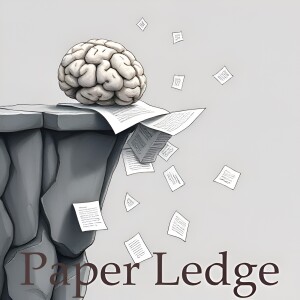

Artificial Intelligence - ContextAgent Context-Aware Proactive LLM Agents with Open-World Sensory Perceptions
Hey PaperLedge crew, Ernis here! Get ready to dive into some seriously cool AI stuff. Today, we're talking about making AI assistants that are, well, actually helpful. Think less annoying pop-up ads, and more like a super-attentive friend who anticipates your needs before you even realize them yourself.
So, there's this new paper that's tackling a big problem with current AI assistants – they're often kinda…dumb. They react to what you just did, like clicking a button, but they don't really understand the bigger picture. Imagine a virtual assistant that only knows you're typing an email but has no clue you're running late for a meeting and stressed out. Not exactly helpful, right?
This research introduces something called ContextAgent. Think of it as an AI that's trying to become Sherlock Holmes for your daily life. The team aimed to create an LLM agent that incorporates sensory and historical contexts to enhance proactive capabilities.
Instead of just looking at what's happening on your computer screen, ContextAgent pulls in information from all sorts of places, especially wearable devices like smartwatches or glasses. It's like having AI ears and eyes on your side, processing video, audio, and other sensor data to understand what you're really doing and what you might need.
"ContextAgent first extracts multi-dimensional contexts from massive sensory perceptions on wearables (e.g., video and audio) to understand user intentions."For example, imagine you're rushing around the kitchen, muttering about needing a specific ingredient. ContextAgent, through your smartwatch mic, picks up on that, checks your calendar and sees you have friends coming over for dinner, and proactively suggests a recipe that uses that ingredient. Boom! Problem solved before you even fully formed it.
But it's not just about the immediate situation. ContextAgent also learns from your past behavior. Think of it as building a personal profile, a "persona context". It remembers that you always forget your umbrella when it's drizzling, or that you prefer your coffee extra strong in the mornings. This historical data helps it make even smarter predictions about what kind of assistance you might need.
The amazing thing is that when it figures out you need help, it doesn't just throw a bunch of options at you. It automatically uses the right "tools" to assist you, quietly and efficiently. Think of it like this: instead of asking if you want to set a reminder, it just does it based on your conversation and calendar. It's about being helpful without being intrusive.
Now, to prove that ContextAgent is actually better than existing systems, the researchers created a special test called ContextAgentBench. It's a benchmark with 1,000 real-world scenarios, covering everything from working at your desk to cooking dinner. They tested ContextAgent against other AI assistants, and guess what? It performed significantly better, achieving 8.5% higher accuracy in proactive predictions and 6.0% higher accuracy in tool calling.
- Proactive predictions: How well the AI can guess what you need before you ask.
- Tool calling: How accurately it can choose the right tool (like setting a reminder or sending a message) to help you.
These results are pretty impressive, suggesting that this approach of using sensory data and personal history is a big step forward in creating truly helpful AI assistants.
So, why does this research matter?
- For everyday listeners: Imagine a world where your AI assistant anticipates your needs, saving you time and reducing stress.
- For developers: This research provides a blueprint for building more sophisticated and user-centric AI assistants.
- For ethicists: This raises important questions about data privacy and the potential for AI to become too intrusive.
This research opens up a lot of possibilities, and also raises some interesting questions:
- How comfortable are we with AI constantly monitoring our actions and conversations?
- Could this technology be used to manipulate or influence our behavior?
- What safeguards need to be in place to protect our privacy and ensure that these AI assistants are used ethically?
That's all for this episode, crew! Keep thinking, keep learning, and keep questioning. Until next time!
Credit to Paper authors: Bufang Yang, Lilin Xu, Liekang Zeng, Kaiwei Liu, Siyang Jiang, Wenrui Lu, Hongkai Chen, Xiaofan Jiang, Guoliang Xing, Zhenyu Yan
More Episodes
All Episodes>>Create Your Podcast In Minutes
- Full-featured podcast site
- Unlimited storage and bandwidth
- Comprehensive podcast stats
- Distribute to Apple Podcasts, Spotify, and more
- Make money with your podcast












